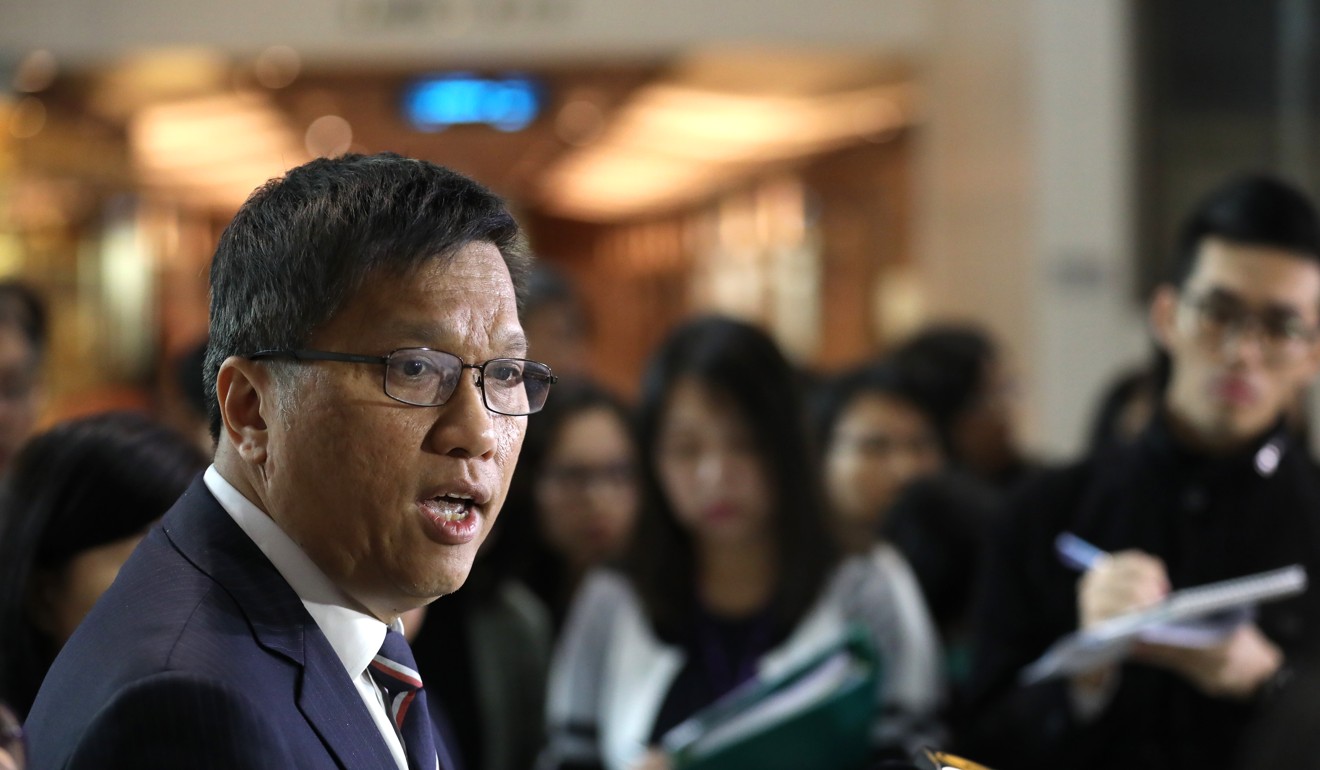
Housing Authority expects high surplus of HK$13 billion for coming year on profits from Hong Kong subsidised homes, but uncertainty looms
- Estimates do not consider policy change which would require more public housing, including potentially loss-making low-rent homes for needy
Hong Kong’s biggest public housing provider expects to record its highest surplus in almost 15 years at HK$13 billion for 2019-20, mostly because of larger profits from selling affordable homes.
The government plan includes potentially loss-making low-rent homes for the needy families.
Professor Chan Ka-lok, chairman of the authority’s finance committee, said it had not assessed the impact of the new policy, but would monitor details closely.

The last surplus high was in 2005-06 when the authority recorded HK$16.3 billion.
Chan said due to looming uncertainty, the authority could not tell when it would need to tap into a HK$82.4 billion (US$10.5 billion) government housing reserve to fund future projects.
“The forecast shows that our financial situation will remain sound in the next five years,” Chan said. “But because of changes, including [the new policy], at this point we do not have enough information to assess when we will need to apply for the reserve fund.”
The authority’s total fiscal reserve stood at HK$41.1 billion this year and is expected to remain around this level in five years. The body would need to consider using the government fund if the reserve is no longer sufficient to cover future projects.
Early last month, the Transport and Housing Bureau, following Chief Executive Carrie Lam Cheng Yuet-ngor’s suggestion, revised its 10-year housing supply target, increasing the ratio between public and private housing to 70:30 from the current 60:40.
Activists believe wait for public housing will get worse before getting better
This means the authority will need to build 31,500 rental and subsidised flats every year in the next decade, up from 28,000 before the policy change.
The authority said the surplus increase in 2019-20 was partly due to a projected profit of HK$9.4 billion from selling subsidised homes. The profit was HK$5.5 billion in 2018-19.
The higher profit was partly because the income from selling three subsidised housing estates this year would be included in next year’s account, the authority said.
On top of the subsidised sale of flats to the middle-class, another “green form” subsidised housing estate with even bigger discount for public housing tenants would also be for sale next year.
The authority sold some 4,431 subsidised flats this year. It remains to be seen how many such flats it will sell next year.
By 2022-23, the authority’s surplus will drop to HK$8 billion, partly from the deficit in building and operating rental housing.
For this year, the authority recorded a surplus of HK$0.3 billion in rental housing, which is expected to turn into a deficit of HK$0.45 billion by 2020-21. This was expected to further deepen to HK$1.9 billion by 2022-23.
Developers and landlords could take a hit with rates changes – but what are they?
The authority said the expected deficit was down to the predicted increase in the number of rental flats expected to be built, and inflation, while also assuming rents would remain unchanged in the next five years.
The authority reviews its rental fees every two years. This year, the authority raised its rent by 10 per cent.
Economist Andy Kwan Cheuk-chiu, director of the ACE Centre for Business and Economic Research, said the policy change could lead to higher prices in the private market because the supply of private flats would be slashed, which would be bad news for the public sector.
The pricing of the subsidised flats is connected to market affordability, which means the flats have to be sold at steeper discounts if the private market becomes less affordable, Kwan said.
He added that the authority would also have to build more potentially loss-making rental flats, and if the economy dampened in the near future, the prospect of raising rents would be dim.

